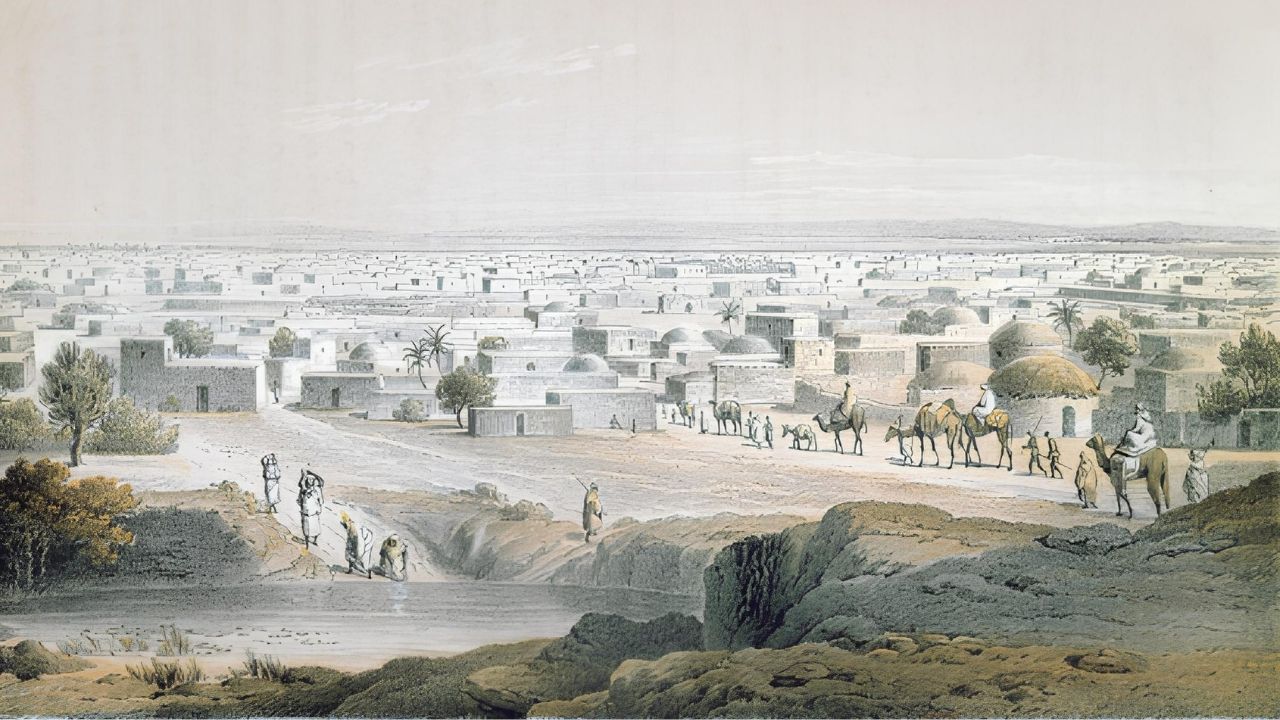
Did you know the British conquest of the Kano Emirate in 1903 marked a significant turning point in Nigerian history? This event reshaped the political landscape, bringing Kano under British control. The Kano Emirate, a powerful and influential state in Northern Nigeria, had a rich history and culture before the British arrived. Understanding this conquest helps us grasp the complexities of colonialism and its lasting impact on the region. From the strategic battles to the diplomatic maneuvers, the story of Kano's fall is filled with intrigue and drama. Let's dive into 25 fascinating facts that shed light on this pivotal moment in history.
Key Takeaways:
- The British conquest of the Kano Emirate in 1903 reshaped Nigeria's culture and society, introducing new governance, education, and legal systems that still impact the country today.
- Despite resistance, the British conquest left a lasting legacy, shaping Nigeria's infrastructure, economy, and political structures, and symbolizing the struggle against colonialism in Nigerian history.
The British Conquest of the Kano Emirate: An Overview
The British conquest of the Kano Emirate marked a significant chapter in the history of Nigeria. This event reshaped the political, cultural, and social landscape of the region. Here are some fascinating facts about this historical event.
-
The Kano Emirate was one of the most powerful and influential emirates in Northern Nigeria before British colonization.
-
The British conquest of Kano occurred in 1903 during the period of the Scramble for Africa.
-
British forces were led by Colonel Frederick Lugard, who played a crucial role in expanding British influence in Nigeria.
-
The Kano Emirate was part of the Sokoto Caliphate, a large Islamic state in West Africa.
The Battle and Its Aftermath
The battle for Kano was a pivotal moment in the British conquest. It involved strategic planning and fierce combat.
-
The British forces attacked Kano on February 3, 1903, after a series of negotiations failed.
-
The Emir of Kano at the time, Aliyu Babba, was not present in the city during the attack, which weakened the defense.
-
The British used modern weaponry, including Maxim guns, which gave them a significant advantage over the Kano defenders.
-
The battle lasted for several days, with heavy casualties on both sides.
-
After the fall of Kano, the British installed a puppet emir, Abbas, who was more amenable to British interests.
Cultural and Social Impact
The British conquest had profound effects on the cultural and social fabric of the Kano Emirate.
-
The British introduced new administrative systems, replacing traditional governance structures.
-
The conquest led to the spread of Christianity in a predominantly Muslim region.
-
British rule brought about significant changes in the education system, with the introduction of Western-style schools.
-
The traditional economy, based on agriculture and trade, was disrupted by the imposition of colonial economic policies.
-
The British also introduced new legal systems, replacing Sharia law with British common law in many areas.
Resistance and Rebellion
Despite the conquest, there was significant resistance and rebellion against British rule.
-
Many local leaders and communities resisted British control, leading to several uprisings.
-
The most notable rebellion was the Satiru Rebellion of 1906, which was brutally suppressed by the British.
-
Resistance continued in various forms, including passive resistance and non-cooperation with colonial authorities.
-
The British used a combination of military force and diplomatic strategies to quell resistance and consolidate their control.
Legacy of the Conquest
The legacy of the British conquest of the Kano Emirate is still evident today in various aspects of Nigerian society.
-
The conquest paved the way for the unification of Northern and Southern Nigeria under British rule.
-
It also contributed to the development of infrastructure, including roads, railways, and telecommunication networks.
-
The introduction of Western education and legal systems had a lasting impact on Nigerian society.
-
The conquest also led to the integration of the Kano Emirate into the global economy.
-
The British influence is still visible in the political and administrative structures of modern Nigeria.
-
The conquest of Kano is remembered as a significant event in Nigerian history, symbolizing the struggle against colonialism.
-
The legacy of the British conquest continues to shape the identity and culture of the Kano Emirate and its people.
Reflecting on the British Conquest of Kano
The British conquest of the Kano Emirate in 1903 marked a significant turning point in Nigerian history. This event reshaped the region's political landscape, integrating Kano into the British colonial framework. The Emirate's rich cultural heritage and economic prowess made it a valuable addition to the British Empire. Despite the initial resistance, the British established control, leading to changes in governance, trade, and social structures.
Understanding these historical events helps us appreciate the complexities of colonialism and its lasting impact on modern Nigeria. The Kano Emirate's resilience and adaptation during this period highlight the dynamic interplay between indigenous traditions and colonial influences. As we reflect on this chapter, it's clear that the legacy of the British conquest continues to influence Kano's identity and development today.
Frequently Asked Questions
Was this page helpful?
Our commitment to delivering trustworthy and engaging content is at the heart of what we do. Each fact on our site is contributed by real users like you, bringing a wealth of diverse insights and information. To ensure the highest standards of accuracy and reliability, our dedicated editors meticulously review each submission. This process guarantees that the facts we share are not only fascinating but also credible. Trust in our commitment to quality and authenticity as you explore and learn with us.
